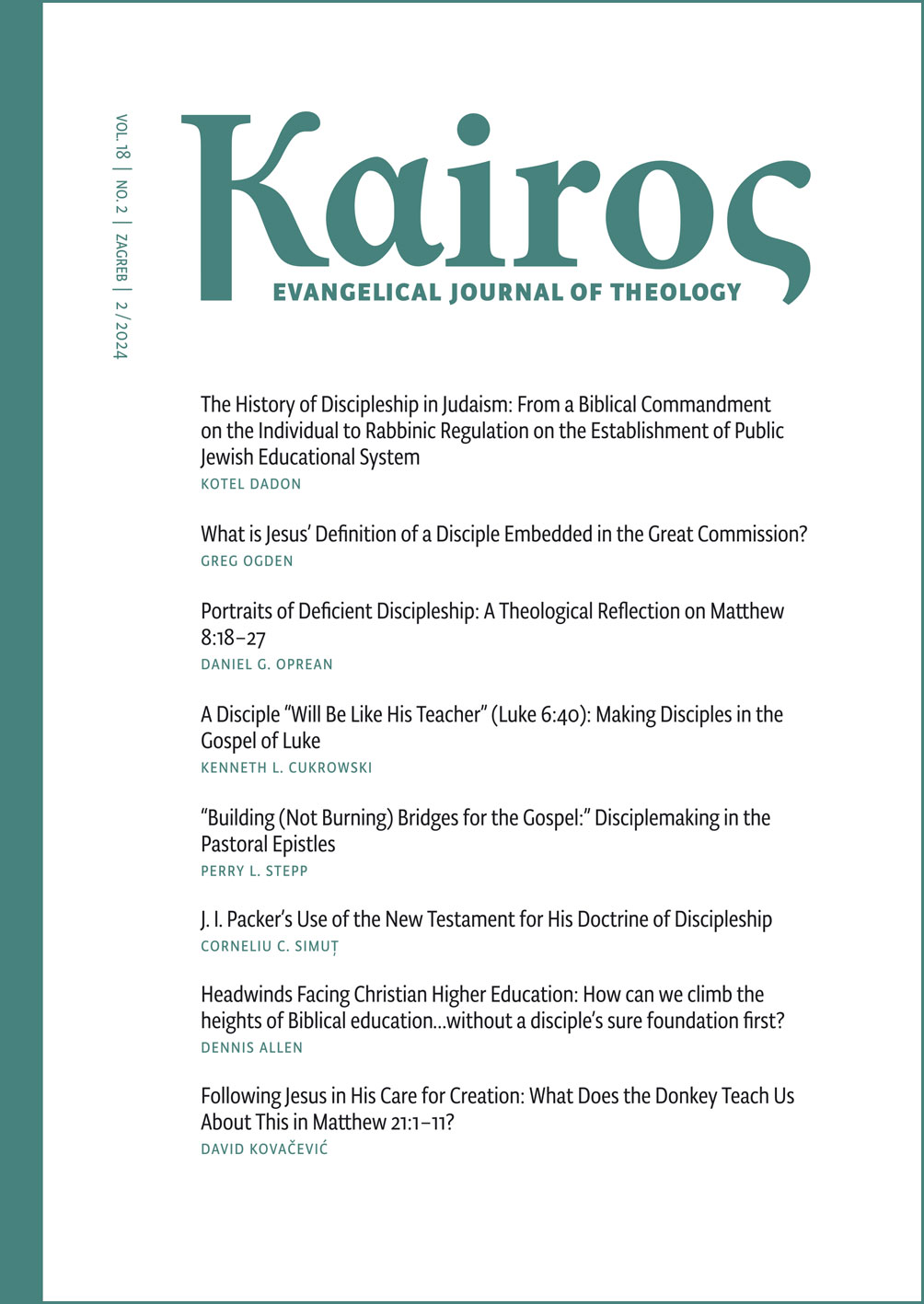J. I. Packer’s Use of the New Testament for His Doctrine of Discipleship
DOI:
https://doi.org/10.32862/k.18.2.6Keywords:
discipleship; New Testament; Gospels; epistles; Acts of the Apostles; RevelationAbstract
This paper investigates how J. I. Packer, one of the most prominent Evangelical theologians of the 20th and 21st centuries, used the New Testament to build his perspective on discipleship. While a systematic presentation of discipleship is not available in Packer’s works, his numerous references to the term reveal his deep preoccupation with the subject. Hence my decision to trace his steps back to the way he uses the New Testament to devise a holistic understanding of discipleship. To achieve this goal, I took several steps of my own, first to study his general view of the Bible, second to go a bit deeper in the same direction by seeing how he works with the New Testament as the fundamental source for his theology of discipleship, and then – the remaining four steps – have to do with Packer’s actual use of New Testament books for his doctrine of discipleship; in this respect, I read about his thoughts on discipleship as he read about it in the four Gospels, in the epistles (Pauline and otherwise), the Acts of the Apostles, and the Book of Revelation. I also did a brief research on what I called Packer’s “two pillars” of discipleship...
Published
Issue
Section
License
Copyright (c) 2024 Kairos : Evangelical Journal of Theology

This work is licensed under a Creative Commons Attribution 4.0 International License.





